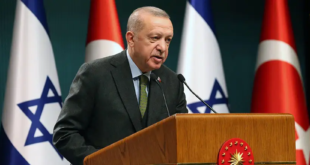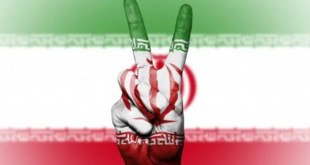CAMP GOUROUKOUN, Chad (Reuters) — Mohammad Ibrahim, 18, waited patiently in the boiling sun to show United Nations Security Council ambassadors the welts burned into his back and head by Sudan’s marauding Janjaweed Arab militiamen.
The ghastly tale repeats itself throughout border hamlets of Sudan and neighbouring Chad, whose boundary is often a line on a map rather than a serious frontier with the same ethnic groups on both sides. The Janjaweed killers, originally organised by Sudan to put down a rebellion, also return again and again.
“They stole cattle. They tied up my feet and hands and kidnapped me and took me away with them. They put some burning plastic on my back, Ibrahim said on Saturday lifting his shirt.
“I feel sick right now. Terrible headache.” The 15-nation Security Council delegation spent five days in Sudan and then came to see the victims of the three-year-old Darfur conflict who took refuge in Chad. At least 200,000 people have died in Darfur and two million are living in squalid camps. More than 235,000 fled to Chad.
French military aircraft flew the group from N’Djamena, the capital, to Abeche in the east and then to Goz Beida, about 100 kilometres from the Sudan border.
Half the delegation visited a camp for 10,000 Chadians who fled attacks in their villages.
The rest went to the Djabal Refugee camp of 14,000 Sudanese refugees, who lined the road with signs protesting the May 5 Darfur peace accord between the government and two rebel groups.
Rebel leaders who refused to sign say the peace deal does not say how the Janjaweed will be disarmed and it short changes autonomy for Darfur.
Like many of the dusty camps, there is a notable shortage of men in Gouroukoun. They have died in the conflict or are fighting in it.
“We have been attacked by the Janjaweed. We have become widows. Our girls have been raped and our men killed. Our properties were destroyed,” said Hanne Adam Ali, in a presentation to the UN group and about 1,000 displaced people.
Security is dreadful for many Sudanese camp dwellers and relief workers, said Ana Liria-France, the UNHCR representative in Chad. The rebel Sudan Liberation Army has forcibly recruited young men and boys. Even teachers in the camp are recruiting.
Chadian security forces are scarce with most tracking their own insurgents. Chad President Idriss Deby, himself the target of four coups, survived a rebel offensive in April that brought the country to the brink of civil war.
Deby wants an international peacekeeping force, which the Security Council plans to send to Darfur. But the council has not figured out how to deal with Chad’s own crisis.
“The main requirement here is there should be better policing in the camps,” Britain’s UN Ambassador Jones Parry said after the council members spent two hours with Deby in N’Djamena. “It’s a policing effort rather more than the sort of mission that is necessary in Darfur.”
France has some 1,000 military personnel in its former colony, nearly all in the air force but its UN Ambassador Jean-Marc de la Sabliere said they would not be policing the camps, although “we will do our share” if there was an international response.
 Eurasia Press & News
Eurasia Press & News



